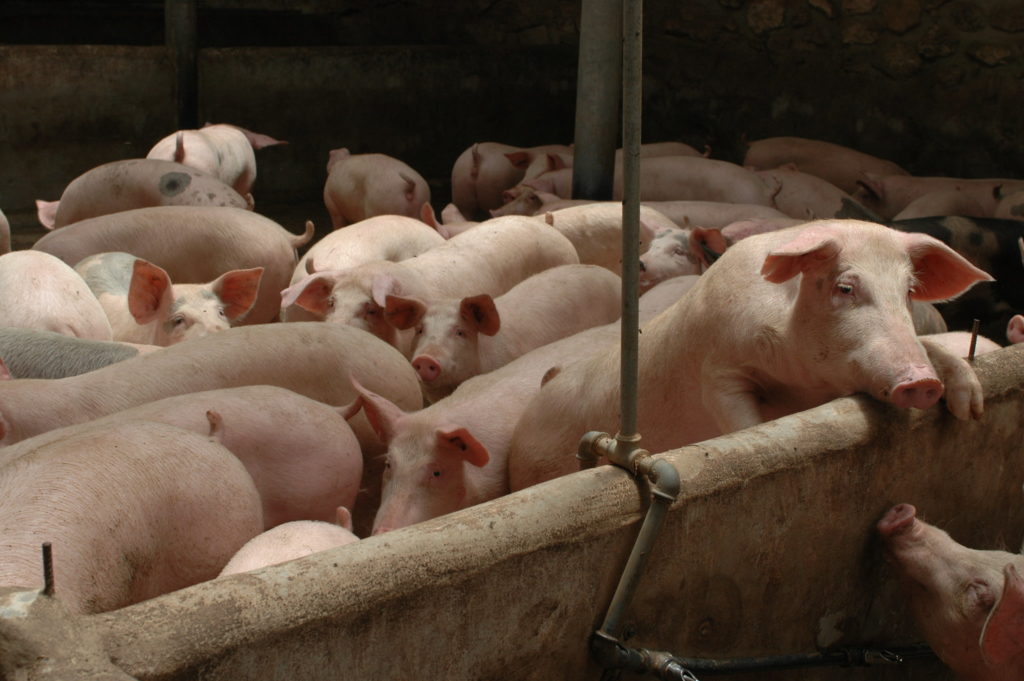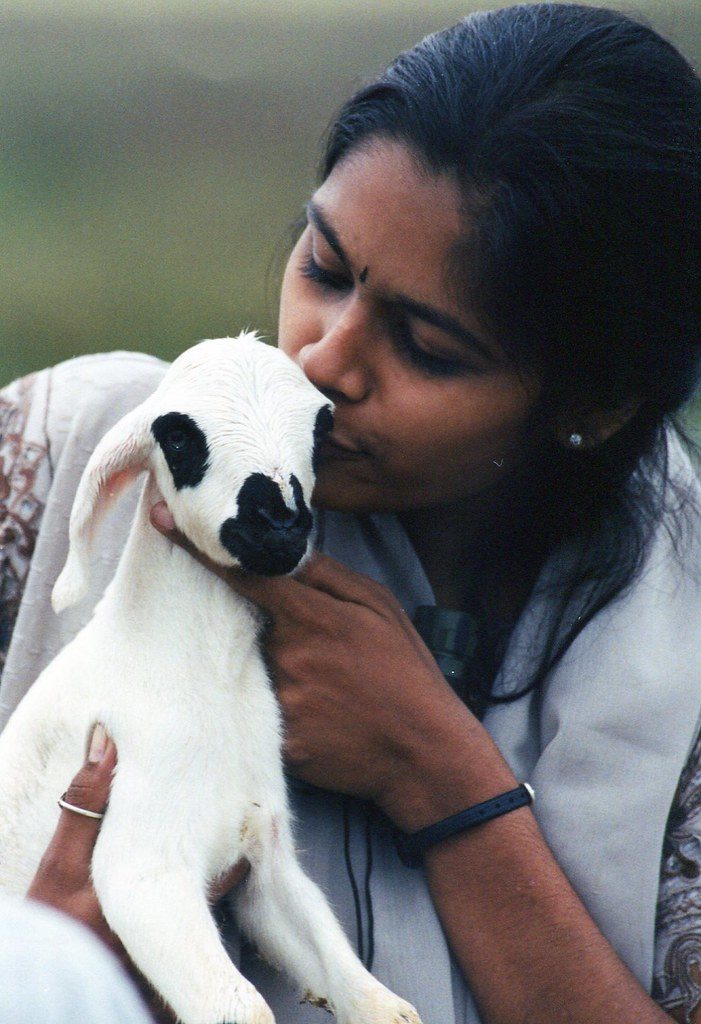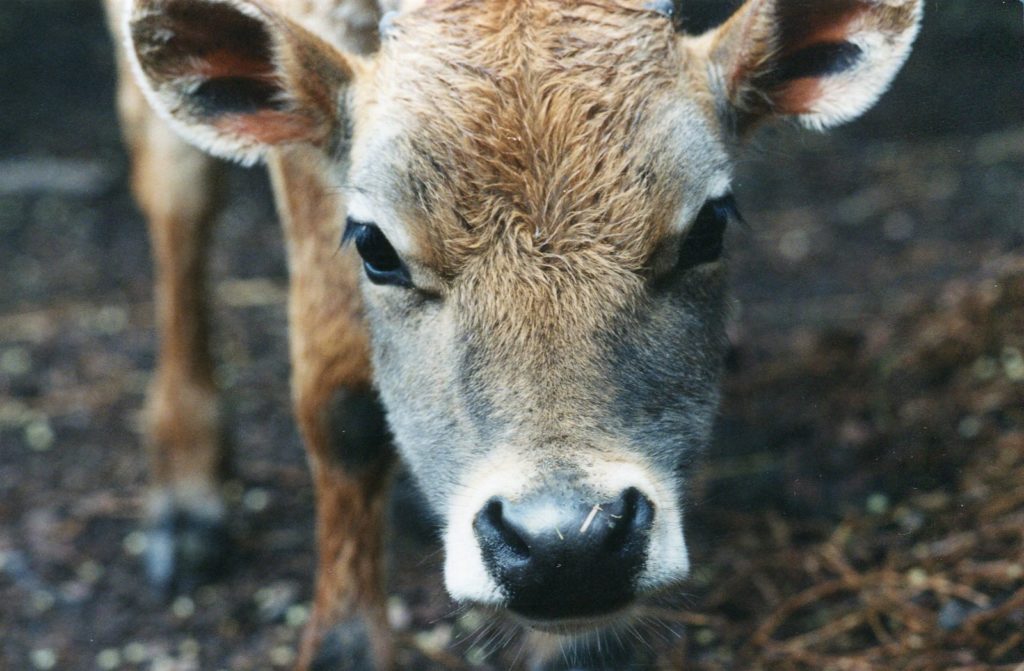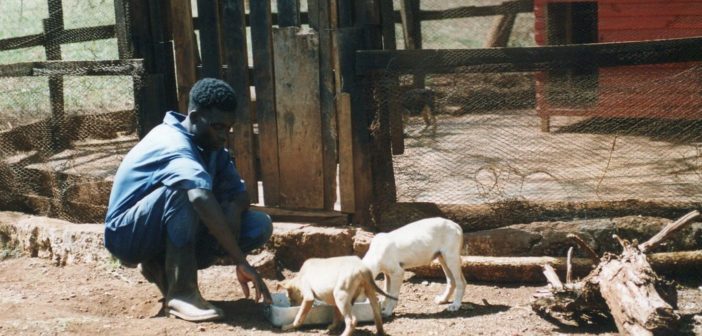The following is a personal view by Virginia Bell, member of Catholic Action for Animals, a group of practising Catholics dedicated to promoting respect for animals within the Catholic Church.
“The last will be first, and the first last”
The Catholic Church is ambiguous in her teaching about how we are to view animals. What she gives with one hand, she takes back with the other. For instance, in the Catechism of the Catholic Church, we are told that we must be “kind” to animals, but then we are also told that we may use animals for whatever we need: food, clothing, entertainment, research, etc. Basically, the Church teaches that animals are there to serve humans. We are supposed to be benign masters, but still masters, who can use animals for whatever purpose.
There is no kindness to animals on an intensive farm, nor in the bullring, nor in a vivisection laboratory, nor in a slaughterhouse. In my opinion, this teaching goes against Christ’s teaching that we should be servants rather than masters. It is in giving service that we earn our reward. At the least, we should do no harm to any creature if we can avoid it.

“Do to others what you would have them do to you”
Those who are mean-spirited use excuses for their lack of concern for animals. Excuses such as the idea that humans are superior to animals. Or that humans take priority over animals. Or we have a God-given right to exploit animals. But questions of superiority, priority or theology are not that relevant as far as the treatment of animals is concerned, because the issue is simply that they don’t want to be hurt, just as you don’t want to be hurt, so don’t hurt them if you can avoid it.
“By their fruits you will know them”
Cruel deeds, even if done in God’s name, reveal the true nature of a person. Virtuous deeds reveal a virtuous person, whatever their religion.
Christians should treat everything with respect: plants, property, objects, the environment, the planet. So consider how much more we should treat other humans and other animals with respect, because they can suffer.
“You are worth more than many sparrows”
Those who are able to know, love and serve God are worth more than those who are not able to, whatever the species. Worth in this spiritual sense means privilege. Those who are able to know, love and serve God are privileged, and with privilege comes responsibility. The privileged show their worth through acts of sacrifice, not by exploiting the less privileged.
“God created man in his own image”

We have slowly learned that people of other nations or societies are not there to serve us. Nor are physically or mentally disabled people there to serve us. On the contrary, we reap fulfilment from serving them. Likewise, creation is not there to serve us. On the contrary, we have a duty to maintain the integrity of creation. Nor are animals there to serve us. At the least, we are obliged not to harm them. And the more we do them service, the more we become spiritual beings, made in the image of a spiritual, caring God.
How can people who have no pity for their prey, as are most people who eat meat, think they are superior to any other animal? Indeed, most other animals don’t choose to eat meat, they have to. There is much we can learn from other animals: living simply, taking only what we need and treading lightly on the planet.
“It is written”
It is possible to pervert the meaning of what is written in the Bible by taking the words literally. It is important to understand the context of what is written, to know what the authors were trying to teach. I feel that there are certain threads running through the Bible, which show the way to truth. Having respect for creation is a thread. Loving your neighbor is a thread. So if a specific piece of writing totally contradicts one of these threads, I would be careful to try to understand what the writing is attempting to teach us.
For example, it is written that Christ said to cut off your hand or foot if they cause you to sin, because that is better than being thrown into eternal punishment whole-bodied. Christ was teaching us about the dire consequences of sin, and about how important it is to avoid the occasions of sin. He would have been horrified if his followers had maimed themselves to avoid sinning.
Christ taught over 2,000 years ago, when people thought differently. When making a point, He would take the norm of the day as background. His intention at these times was not to reaffirm the norm, but to make His point.
I personally would not follow a teaching from the Bible which required me to do something unkind. I would know that there was more going on than was immediately obvious.
“The poor will always be with you”
We Catholics are told by our religious teachers that it is wrong to give to animals money which could be used to alleviate human suffering. This is blatant speciesism. How are these teachers different from the ‘’tax collectors and sinners’’ who do good to their own kind, and ignore others?
As there will always be people in need, what our teachers are in effect saying is never give to help animals. And of course this attitude completely ignores the fact that most animal charities are dealing with problems directly caused by humans.
I’m sure they would think it acceptable to spend money on themselves for holidays, entertainment, celebrations, the occasional luxury, and so on, despite there still being people in need.
Christ faced the same kind of mean-spirited opposition for feasting with his friends, and for allowing expensive ointment to be used on him.

“And who is my neighbor?”
The Church should proclaim that any creature in need is our neighbor, and that ‘’do unto others what you would have them do to you’’ means we should be a neighbor to any creature in need. ‘’Inasmuch as you did it to one of the least of these my brothers, you did it to me.’’
Featured image: a man in Kenya showing kindness towards animals by feeding dogs. Image credit Kim Bartlett – Animal People, Inc.





